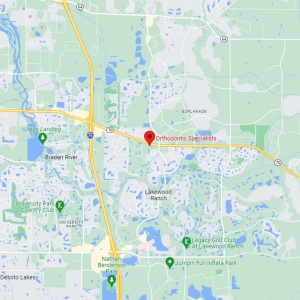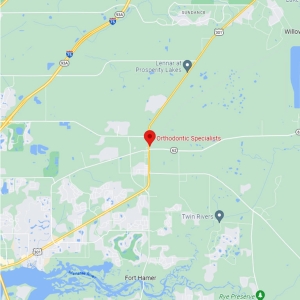TMJ-TMD
 Each of your lower jaws contains a temporomandibular joint (TMJ) that connects them to your skull. These two joints rotate and slide in front of each of your ears and are among the most complex joints in the human body. Each time you open your mouth to speak, eat, laugh, sneeze, yawn, or do another common function, each TMJ and several nearby muscles move to facilitate the action.
Each of your lower jaws contains a temporomandibular joint (TMJ) that connects them to your skull. These two joints rotate and slide in front of each of your ears and are among the most complex joints in the human body. Each time you open your mouth to speak, eat, laugh, sneeze, yawn, or do another common function, each TMJ and several nearby muscles move to facilitate the action.
Most people do not think about their temporomandibular joints, mandible (lower jaw), or temporal bone, which includes the base and sides of the skull when each of these is in proper alignment. It is only when the temporomandibular joints and the parts of the body that support them become unbalanced that jaw pain, headaches, and other issues related to temporomandibular joint disorder (TMD) start to occur.
TMJ vs TMD
People often use the terms TMJ and TMD to describe the same thing, but there are subtle differences between the two. TMJ describes only your jaw joint, while TMD describes the overall condition of joint inflammation and lack of alignment with the mandible and temporal bones. According to the National Institute of Dental and Craniofacial Research, TMD describes the three conditions listed below.
- Chewing muscle disorders
- Jaw joint disorders
- Headaches caused by TMD
Orthodontic Specialists treat mild to severe TMJ/TMD in Bradenton, FL. Our family-owned practice has a presence in East Bradenton, West Bradenton, and Parrish for your convenience.
Typical Causes of TMD
Several factors can contribute to the development of TMD, including stress. People who face unrelenting stress sometimes grind their teeth in their sleep without knowing it. They wake up not feeling well-rested, which can cause low energy, irritability, and other unwanted problems. Other possible causes of TMD include:
- Arthritis in one or both jaw joints
- Broken jaw, dislocated jaw, or another type of jaw injury
- Malocclusion, which means the top and bottom rows of teeth do not fit together like they should
Sometimes, the cause of TMD remains undetermined. The important thing is to recognize its symptoms and seek help from Orthodontic Specialists as soon as possible.
TMD presents differently for every patient. Some may have only one symptom and feel disabled by pain, while others have several symptoms with little disruption to their daily life. We encourage you to contact our privately owned practice to request an exam if you experience any of the symptoms listed below for several days without relief.
- Earache
- Facial pain
- Jaw pain
- Jaw stiffness
- Headache or migraine
- Loose teeth
- Malocclusion
- Neck pain
- Popping or clicking sounds when you open your mouth
- Sensitive teeth
- Shoulder pain
- Ringing in the ears, also known as tinnitus
- Toothache
Certain habits that you may do without thinking can make your TMD progress faster than it would have otherwise. These include:
- Chewing on ice, pens, pencils, and other non-food items
- Grinding your teeth while sleeping or during the day
- Poor posture, since it places extra stress on your facial, neck, and shoulder muscles.
- Regularly taking big bites of food because chewing the food overtaxes your jaw muscles
- Using your teeth to tear packages or open bottles
If you experience any of the above symptoms and cannot figure out why, make a point to observe your own habits more closely. You certainly do not want to make TMJ/TMD in Bradenton, FL, worse before you can get help for it.
How We Diagnose and Treat TMD
Maybe you think that your symptoms are not that big of a deal, and you can either ignore them or treat them yourself. Some home remedies do work, such as taking a non-prescription pain reliever or applying a warm or cold pack to your face. When those remedies are ineffective, you risk living with chronic pain and/or limited chewing function, not to mention wearing down your teeth if you just ignore the problem.
Dr. Jeffrey Thompson starts the process of diagnosing TMD by doing several X-rays. The X-rays help him pinpoint areas of inflammation. He will ask you to open and close your mouth several times to determine your current range of motion. While you do this, he will also place his hands on your jaw joints and the surrounding structures. He will refer you for a CT scan or MRI if the dental X-rays do not yield enough information.
The type of treatment Dr. Thompson recommends depends on your TMD severity, overall health, age, and preferences. Patients whom we suspect grind their teeth often start by wearing a mouthguard at night. The mouthguard covers the top and bottom rows of teeth, making it impossible to grind them.
Physical therapy is also a popular treatment for TMD. You learn and practice exercises to strengthen the muscles around your jaw and stretch your jaw joints. Dietary changes, behavioral changes, counseling to help manage stress, trigger point injections, and posture therapy are all additional first-line treatments to consider. Dr. Thompson only recommends surgery to correct TMD as a last resort.
We Treat All Ages and Address All Needs
Treatment of TMJ/TMD in Bradenton, FL, is just one of the many services we offer at Orthodontic Specialists. Whether you are looking for an appointment for yourself, your child, your teenager, or another family member, we are available for consultation, diagnosis, and treatment. TMD may be a common disorder, but that does not mean you need to live with the discomfort it causes indefinitely.




